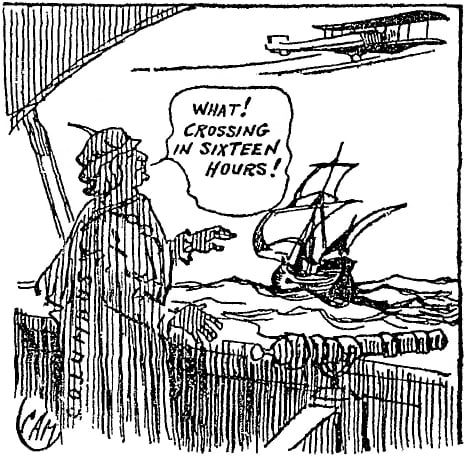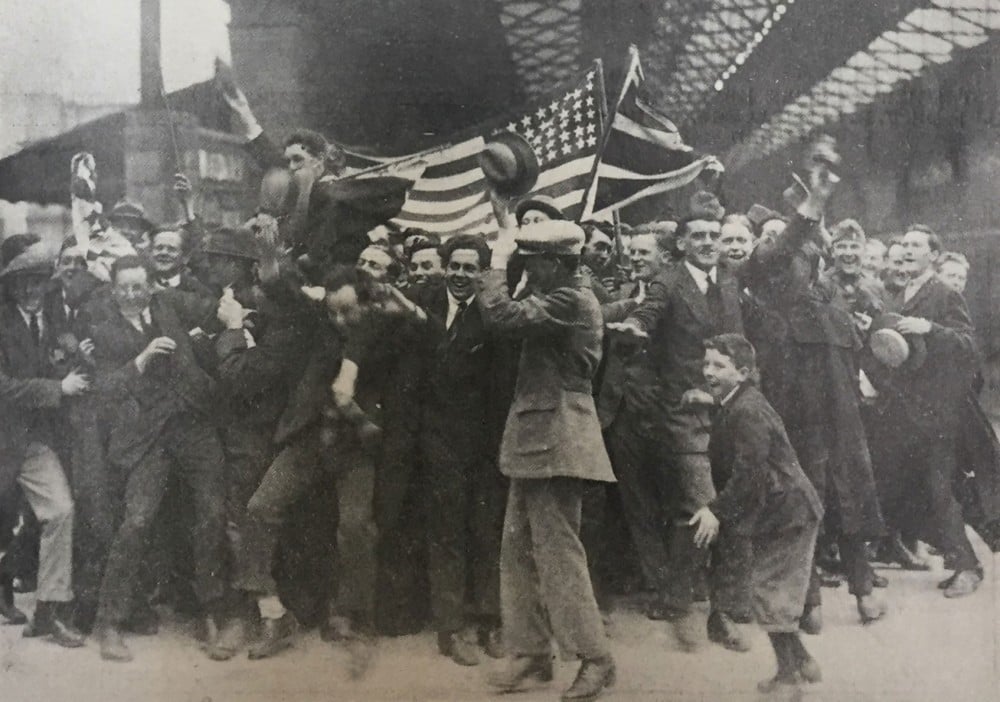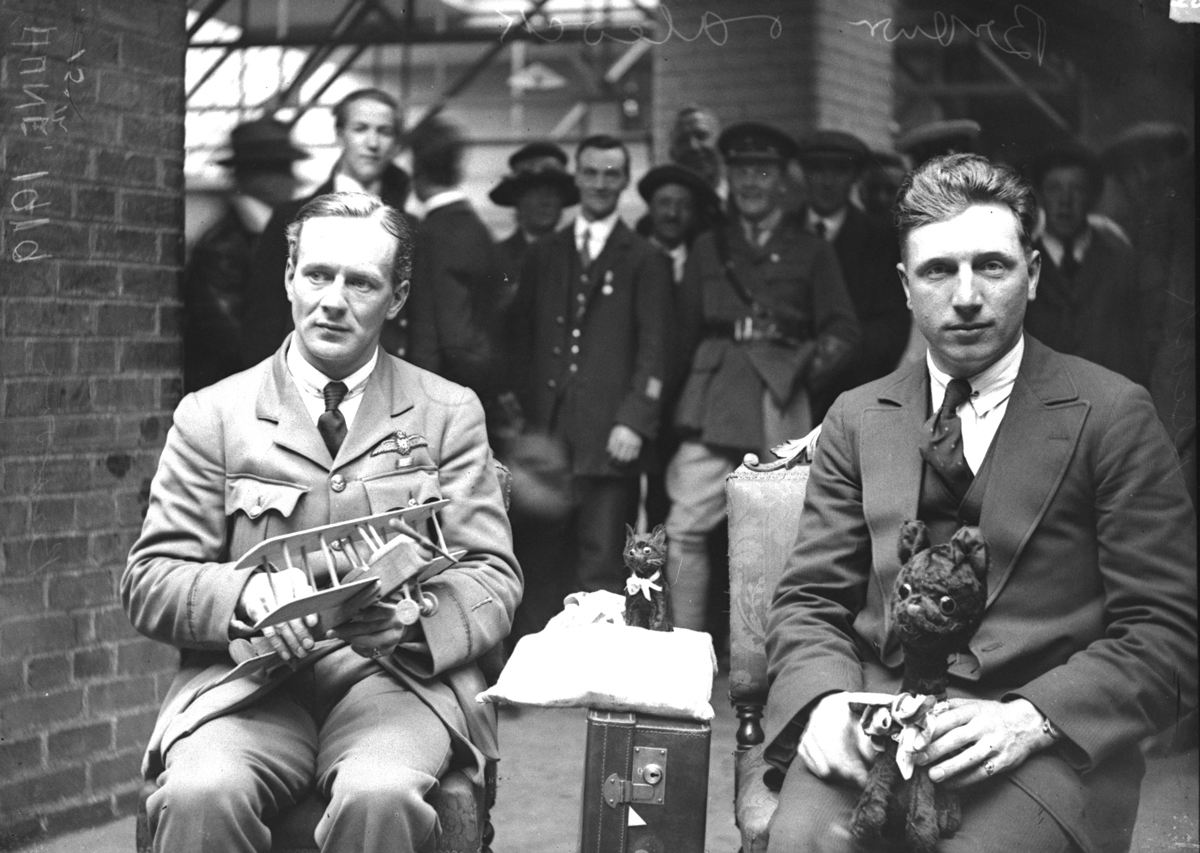Alcock and Brown fly into Clifden – and aviation history
Dublin, 16 June 1919 - Captain John Alcock and Lieutenant Arthur Whitten Brown have been feted as heroes in Dublin after becoming the first people in history to fly across the Atlantic Ocean.
It took them and their double engine Vickers-Vimy biplane almost 16 hours to complete the 1,900 miles journey which began in St John’s, Newfoundland in Canada on the afternoon of 14 June.
Before departing, Lt Brown, the navigator, declared that his intention had been to head for a landing at Galway Bay, but added that he would have been satisfied with any point along the Irish west coast.
As it turned out, the landing point was not too far from the original destination. Despite unfavourable weather, the men set their plane down in Derrygimlagh Bog, behind the Marconi station near the small town of Clifden shortly before 9 am on 15 June. The plane circled the town a number of times before settling down to earth near the aerials of the station.

Cartoon showing Christopher Columbus standing in admiration of the time it took Alcock and Brown to complete the journey that he pioneered in 1492 (Image: Sunday Independent, 22 June 1919)
The historic crossing secures the Daily Mail’s £10,000 prize for the two pilots and comes just weeks after the well-publicised failed attempt of another pair, Hawker and Grieve.
The journey
Flying through the dark in inclement weather at an average speed
of 120 miles per hour, there were occasions when Alcock and Brown
came perilously close to losing their way. At one point it seemed
that had come to within a few feet of the water; on another, they
felt that they were flying upside down.
Because of the poor visibility, the adventurers only caught sight of water about six times during the crossing, sustaining themselves with sandwiches, chocolate and coffee.
‘We have had a terrible journey’, Capt. Alcock recounted for the Daily Mail.
‘The wonder is we are here at all. We scarcely saw the sun or the moon or the stars....For hours the machine was covered in a sheet of ice, carried by frozen sleet, at another time the fog was so dense that my speed indicator did not work, and for a few second it was very alarming. We looped the loop, I do believe, and did a very steep spiral.’
Capt. Alcock and Lt Brown had intended to fly onwards to London, but the damage to their machine on its landing in Clifden, meant that they had to travel by other means.
The reception
The men were brought from Clifden to Galway to Dublin and much
excitement and celebration has accompanied them.
Practically all of Clifden flocked to the bog to view their plane, which is now under military protection.
In Galway, the men were presented with bouquets of flowers and claddagh rings and a civic reception was held in their honour at the Railway Hotel.
On their arrival at Broadstone station in Dublin, Capt. Alcock and Lt Brown were greeted by a group of cheering Trinity College students waving union jacks and stars and stripes flags.

Cheering Trinity students greeted the two aviators at Broadstone Station in Dublin, with union flags and star spangled banners (Image: Irish Life, 20 June 1919. Full collection available in the National Library of Ireland)
Messages of congratulations have come from both Washington and London. Reuters reports that a resolution has been introduced to the House of Representatives authorising President Wilson to confer upon the men the Congressional Medal of Honour.
The British Prime Minister, David Lloyd George, has also expressed congratulations on what he described as a ‘splendid achievement’.
He said he was ‘especially delighted that two British officers who fought in the war should be the first to link Europe and America in a single non-stop flight’. Both pilot and navigator were held as prisoners during the recent war, Capt. Alcock on the Turkish front, and Lt Brown in France.
[Editor's note: This is an article from Century Ireland, a fortnightly online newspaper, written from the perspective of a journalist 100 years ago, based on news reports of the time.]





















